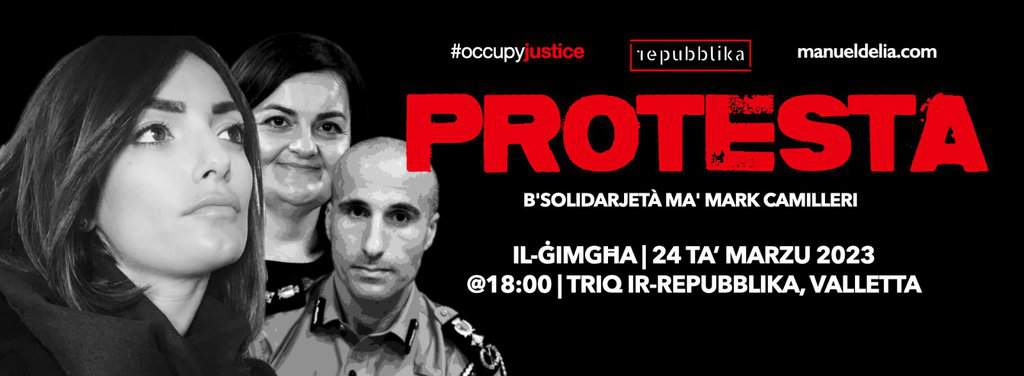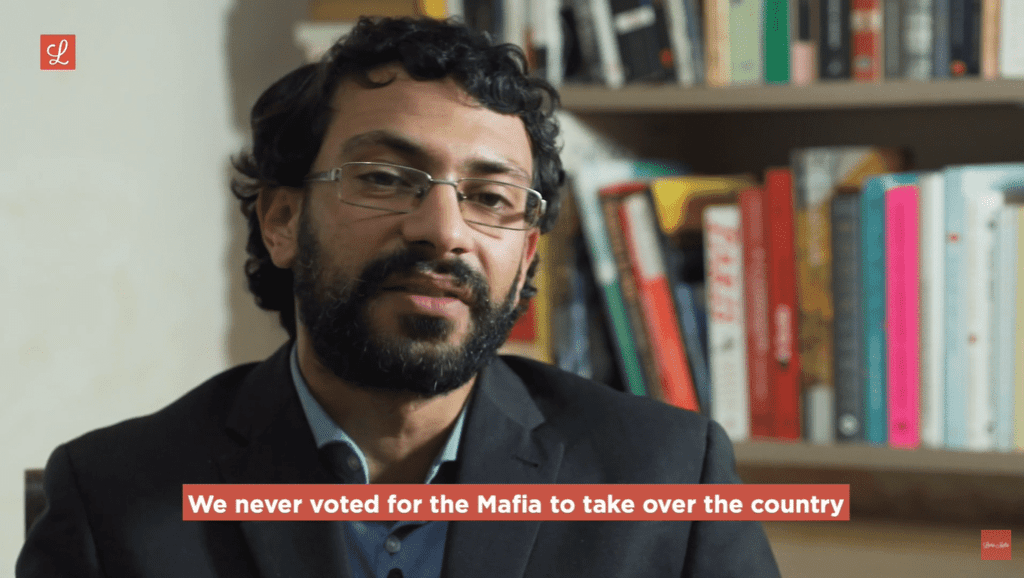
How swiftly do the slumbering police officers and prosecutors who sleep through evidence an MP took dirty money to cover up for a criminal, wake up to chase a writer who drew conclusions from that evidence?
We’ll be told we’re inconsistent for complaining that the institutions are chasing Mark Camilleri with the full force of the law. How can you be for the rule of law, we are told, if action is not taken against someone who broke it?
But the unequal application of the law is an injustice. The law rules if it is blind. Here it is blind to the crimes proven by the conversations between Rosianne Cutajar and Yorgen Fenech, but its eyes are trained on anyone who isn’t.
Rosianne Cutajar committed no crime when she slept with Yorgen Fenech. She made a seriously objectionable choice on ever so many fronts, concerned more with the brand and the price of the jackets and the bags he bought her and the cash he poured into her pockets than with the basic honesty of her rare public utterances. But making objectionable choices is not a crime, even choosing to be the bit on the side of an uncouth sugar daddy, even choosing to do so while serving the people as their MP and for some time a government minister.
But taking money from someone and speaking on his behalf and in his interest in a Parliamentary chamber without declaring interest amounts to trading in influence.
The police and the attorney general have had reason to suspect this since Rosianne Cutajar made her oddly defensive speeches waving the flag of the Electrogas project and professing furious anger even at the notion that Yorgen Fenech’s wealth and corrupt interests may have had even a smidgen of a relationship with the killing of Daphne Caruana Galizia. Not that she ever publicly properly expressed the view that the killing of Daphne Caruana Galizia was something she felt was a bad thing in any way.
The police and the attorney general have had evidence of this since the day Yorgen Fenech was arrested and they could swim through his mobile phone.
To be fair, and in consistency with the notion that the law applies equally for everyone, the phone contained evidence of several other politicians trading their influence with Yorgen Fenech. There’s no suggestion that sex was involved in those cases but influence can be traded even by clothed fawning imbeciles like Edward Zammit Lewis.
So why have we seen only the messages exchanged with Rosianne Cutajar? Well, because whenever stories emerged in the press about how others traded in influence with Yorgen Fenech, the subjects of those stories thought it wise not to make a fuss. Rosianne Cutajar does not know where ‘wise’ lives. She sued Mark Camilleri assuming he would be unable to prove what he claimed about her. And Mark Camilleri decided to show she had made the wrong assumption.
I have, on occasion, strongly disagreed and criticised Mark Camilleri. Ideologically he swims in deep red waters of a certain breed of socialism that I find impractical. He worked for the Labour government and militated in the Labour Party’s ranks which is never a good recommendation.
But if freedom of expression is to be meaningful it surely must amount to the freedom to write things people disagree with. I am people.
Whatever anger or rancour or disappointment motivated him or what desire for revenge drove him or what saintly mission possessed him to seek to right deeply rooted wrongs, he has used his free expression to denounce corruption in government and criminal infiltration in public life.
As we said for Daphne Caruana Galizia, Mark Camilleri’s entitlement to the protection of the public in whose interests he writes is not qualified by whether you like him or agree with him all the time, or even some of the time.
His is one of very few voices that articulates, colourfully but not inaccurately, the consequences of the criminal capture of our state and our community. From the side of the pit from which he sings, the sort of people Joseph Muscat wanted to give a job and a medal to, his voice is in an even fainter choir.
A government critic in Malta shouldn’t have to face SLAPP suits filed vexatiously by politicians against writing which they know to be substantially true.
A government critic in Malta should not be hounded by the authorities for using the means at a writer’s disposal to expose what institutions and people of power conspire to hide.
A government critic in Malta should not feel the heat of police pursuit while the criminals they expose enjoy their unqualified freedom in the sun.
A government critic in Malta should not have to leave the country just so they don’t have to be looking over their shoulder every other minute.
These things have been said of me, so I find it easy to say them of Mark Camilleri.
His right to write is only the servant of your right to know. It’s not just that they want to punish him. It’s that they want to make sure you never get to read what any Mark Camilleri, this one or anyone else who might decide to join the effort to denounce the mafia here, would be writing about them, their proclivities, their misdemeanours, and their crimes.
Join us in Valletta’s Republic Street tomorrow at 18:00 and show the authorities that someone wants Mark Camilleri and others like him to continue writing what is likely to annoy the powerful and corrupt politicians who are the subjects of his work.
